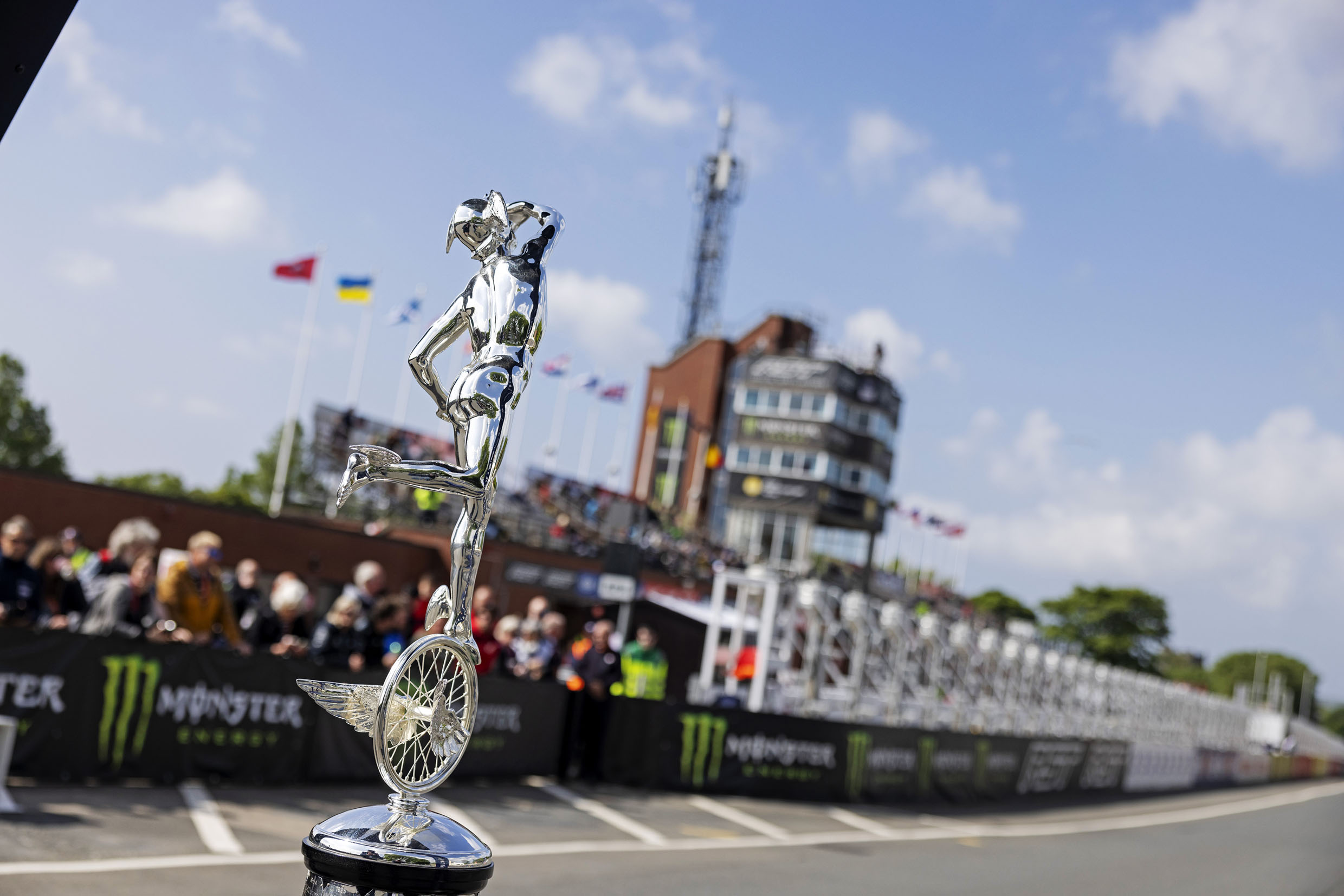
I’ve written many times about the Isle of Man TT, enjoying the races without ever having had to risk my life in taking part. But isn’t that the lot of the journalist; those that can’t do it, talk about it? The Isle of Man, at Tourist Trophy time, is a mythical place, where the laws of physics are seemingly suspended in the name of sport. And, like most sports, much of the enjoyment for the spectator comes from a deep understanding of what is actually happening.
It’s tempting to think of any elite athlete as someone unapproachable, someone so beyond the knowledge of the average man in the street as to render them superheroes. They perform feats that the rest of us can only wonder at; what possible connection could the average man have with them? Haven’t they placed themselves on pedestals?
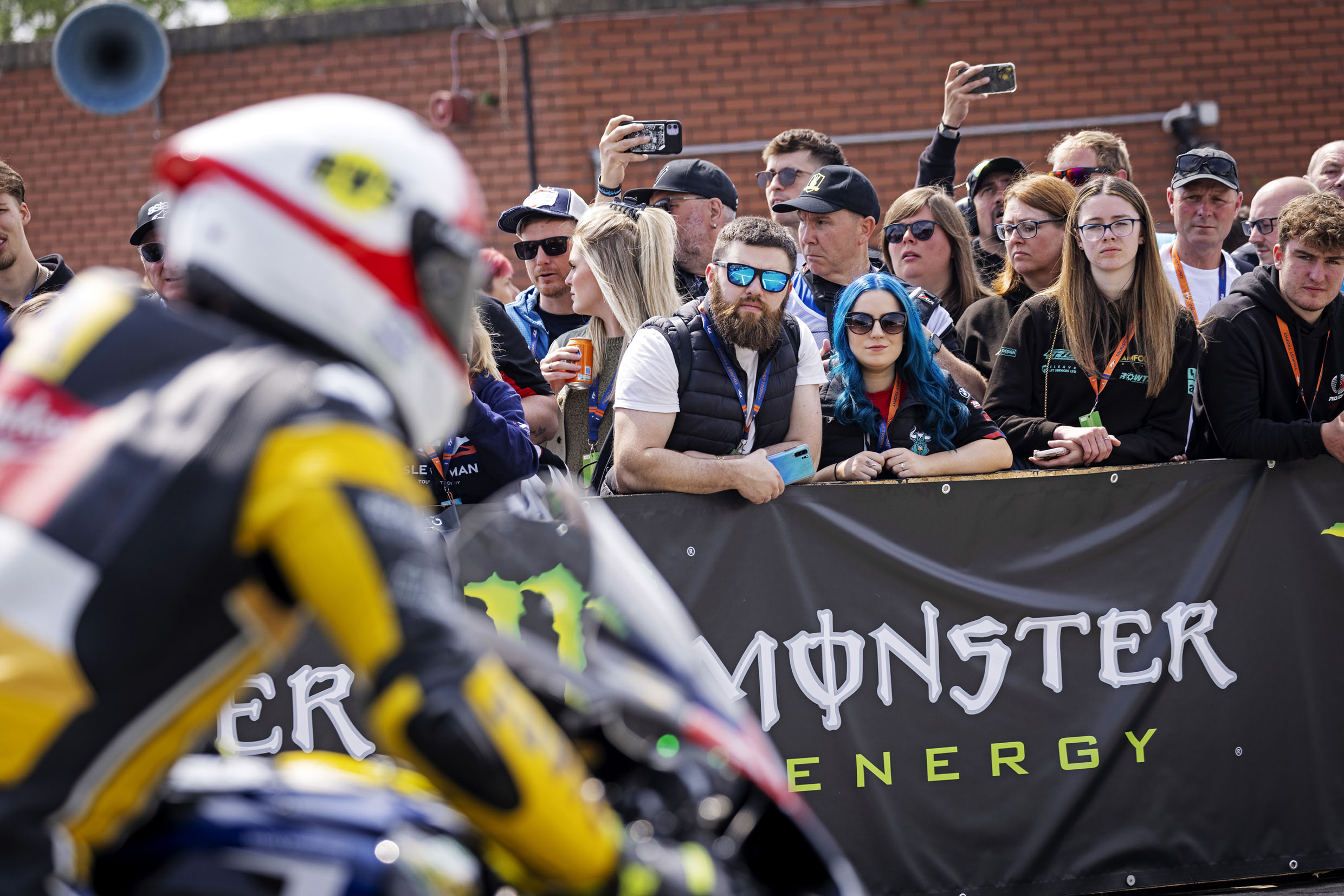
Of course, the truth is more prosaic. These are super-human athletes but, more often than not, they are simply ordinary human beings doing something extraordinary. For some reason, they have been gifted a skill that fate has placed them in a position to exploit but, underneath it all, they’re still ordinary men and women and nowhere does this hold more true than at the Isle of Man.
While there are winners, in the traditional sense, at the TT, there is an argument that says that it is heroic to simply take part, knowing that they will never stand on the top step of the podium or get anywhere close, despite being exposed to the same risks and dangers. They’re doing it because it’s there; because it fulfils a brining need inside them.

For those who might not know, South Africa has its own TT hero. He has been involved in motorcycle sports in his home country for many years, with not a little success but, increasingly, it is his exploits at the TT over the past eight years that have come to define his sporting career. Is he a superhero? On the outside, no.
AJ Venter is your average family man, runs a successful motorcycle workshop (Lekka Racing in Edenvale: 084 080 8237), and looks no different from you or me but, put him on a motorcycle at the TT and those hidden talents come to the fore. No, he’s never tasted the winner’s champagne but, over the course of eight years at the TT, he’s gotten faster and faster, culminating in a top-ten finish this year and a lap time well into the 126mph range. That’s not hanging around.
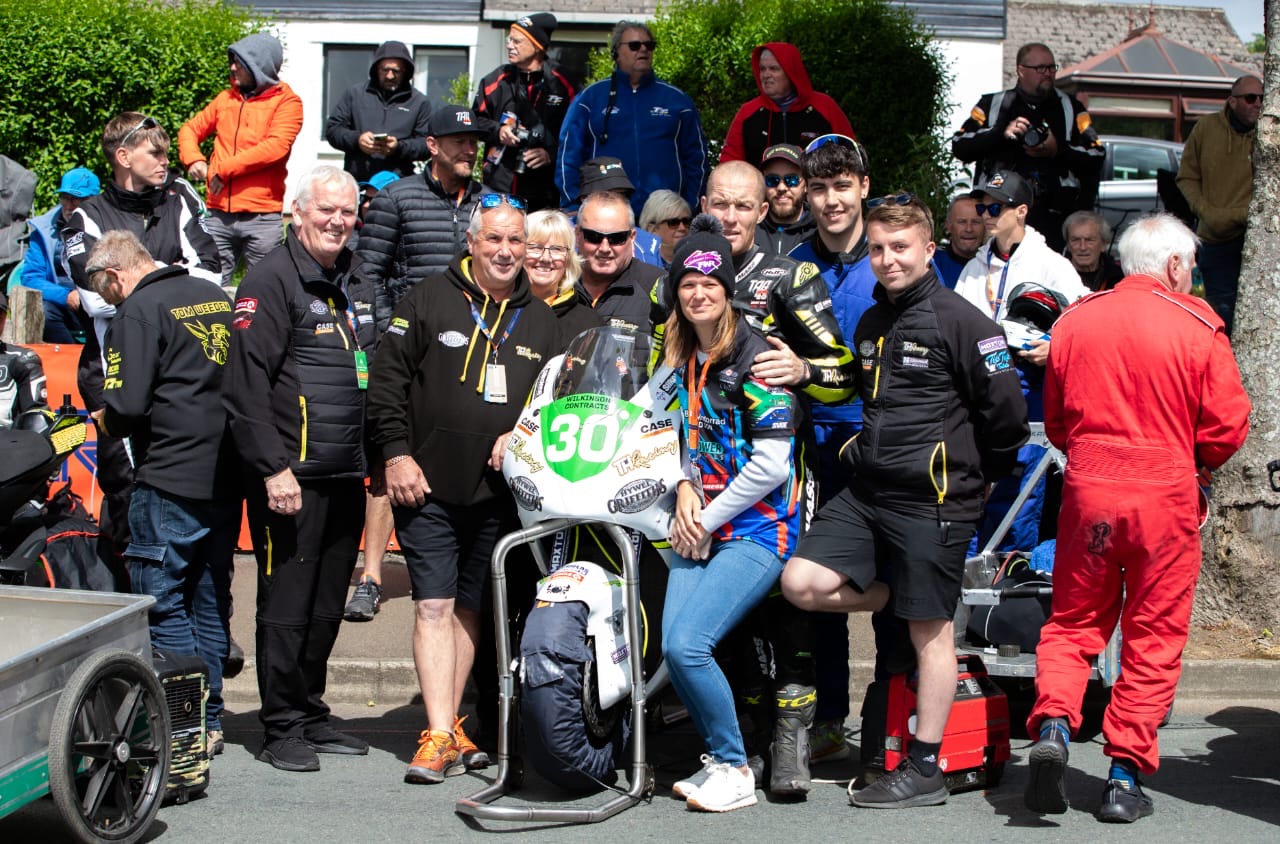
Not only that, but he’s now running his own bikes at the TT, rather than being content to buy a ride with an existing team. This not only increases the satisfaction and sense of control over your own destiny, but it also adds hugely to the stress; stress that has to be dealt with day-to-day and, often hour-to-hour, with the added stress of having to put it all out of your mind once the visor clicks shut, the flag drops and the road stretches out ahead of you and there are a whole new set of challenges awaiting you.
He’s an eloquent man, which is a euphemism for “he’ll talk the hind leg off a donkey”, especially about the TT. But it is a measure of the way he puts things that an hour in his company, talking about the TT, seems like a few minutes.
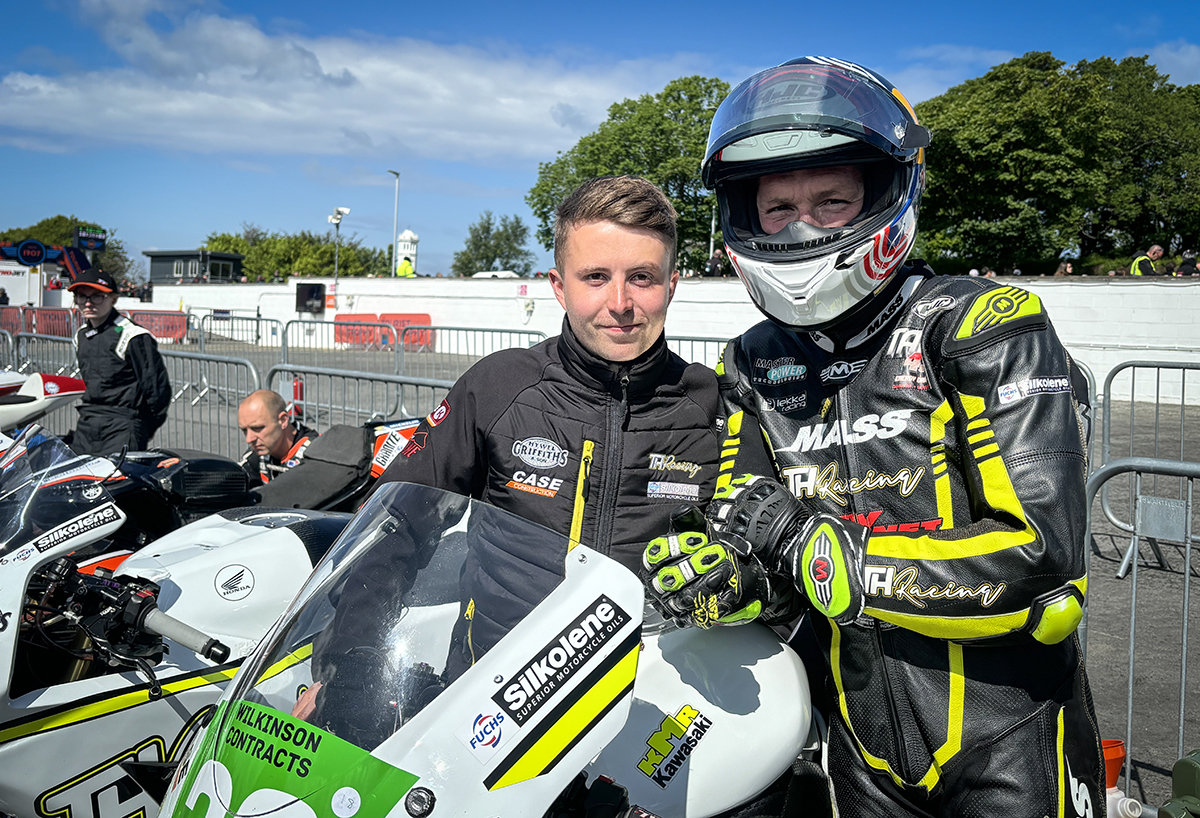
If we take the huge amount of work necessary to get the bikes built here in SA and then shipped over to the Isle of Man, complete with all the spares you think you might need, that is but a drop in the ocean compared to the work that lies ahead when practice week starts.
“The rules for the TT are that every bike has to compete three laps and the rider five laps,” he says. “You not only have to make the cut as a rider, which means being within 107% of the fastest times, but you have to complete three laps on each race bike you are entering – Superbike, Supersport and SuperTwin. If the weather or an accident cuts a session short, or you have a problem and you’re stuck out on the course, then you won’t have time to get back to the pits and get on the next bike. So you start running out of time to do three laps on the Superbike, three laps on the Supersport and also on the SuperTwin; that’s nine laps, but you’re only getting time to do two laps on each in the time available.” In short, it’s a constant battle, a chess game.
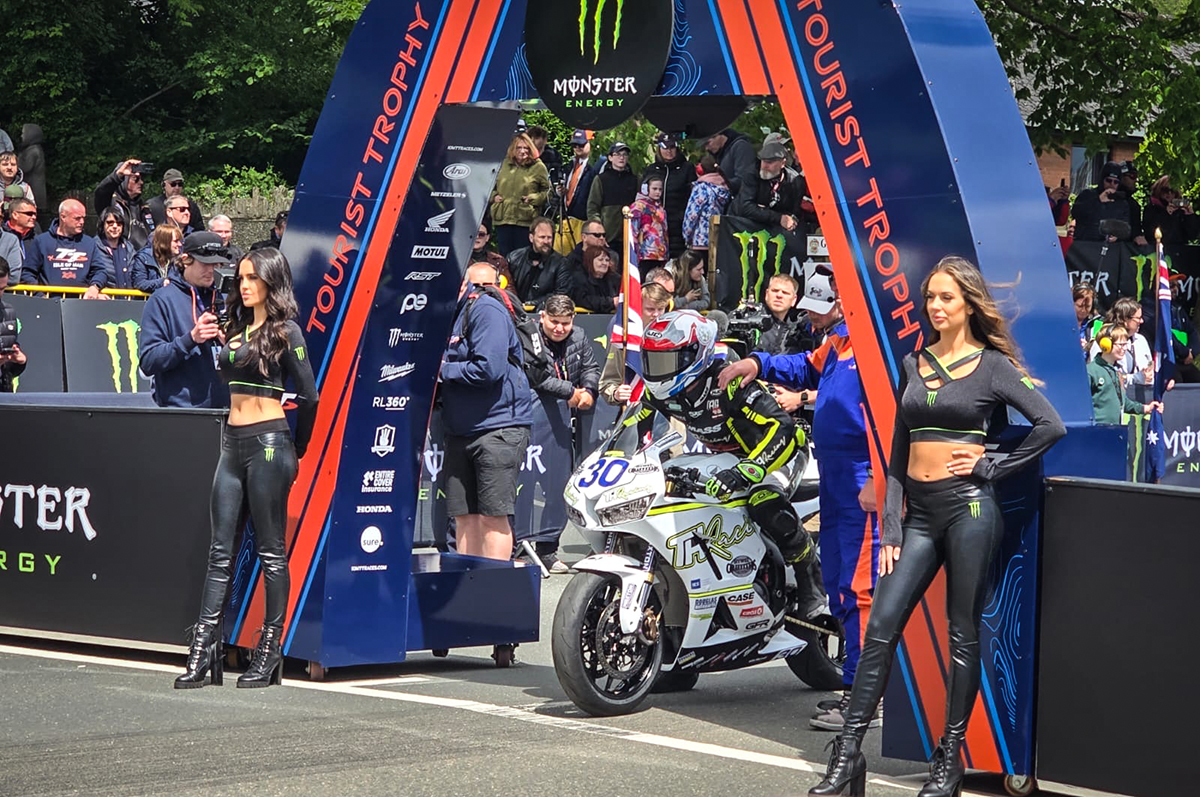
“What happens is that you have to start prioritising during each practice session; two laps on this bike and two on that, then tomorrow, two laps on the last bike. But then, some nights there are no sessions for a particular class so you have to qualify for that bike earlier in the week. That means, however, that one night’s practice might be cancelled due to weather so you lose a session. “We were struggling with the big bike (the Superbike BMW), but we knew that having run the Supersport and Supertwin at the North West 200 in Ireland (that precedes the TT), they were set up pretty well. We had engine issues but that happens. So I could concentrate on the big BMW.
“I did two untimed laps on the SuperTwin because I’ve never ridden that at the TT and then jumped onto the BMW and it nearly ripped my arms off; you’re going from a 100 horsepower bike to a 200 horsepower bike. I came in and I said to the guys, “I can’t ride this thing. It’s wheelying in fifth gear!”
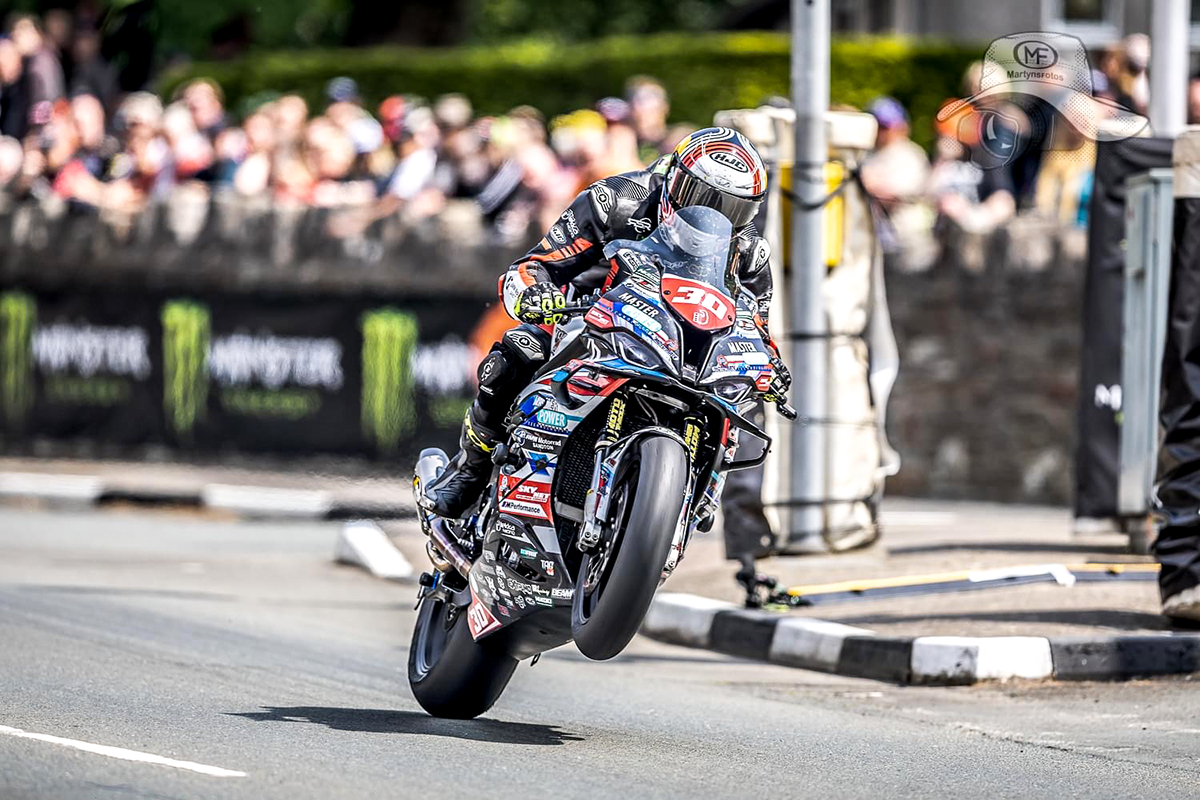
“It’s not the first time I’ve ridden a Superbike, of course, but it’s that change of speed! I did 304km/h at the end of the straight. I contemplated that I was getting old; I can’t see, because your head is shaking so much you’re getting blurred vision. I’ve never had that, I thought that there was something wrong with me. Meanwhile, I just hadn’t ridden that fast for some time so I had to get my head up to speed because everything is coming past you so fast you have to recalibrate.”
“We did the first and second night’s practice and I came in and said to the guys,”‘this thing (the BMW) isn’t pulling. We have to figure out what it is.” Now, at home, where we built the bike, I can put it on my own Dyno and figure out what the problem is. At the TT, you’re in the paddock where there is a Dyno you can rent time on but it costs forty pounds per time for three runs. This revealed that we were 15 horsepower down and they gave us a list of things to check.”
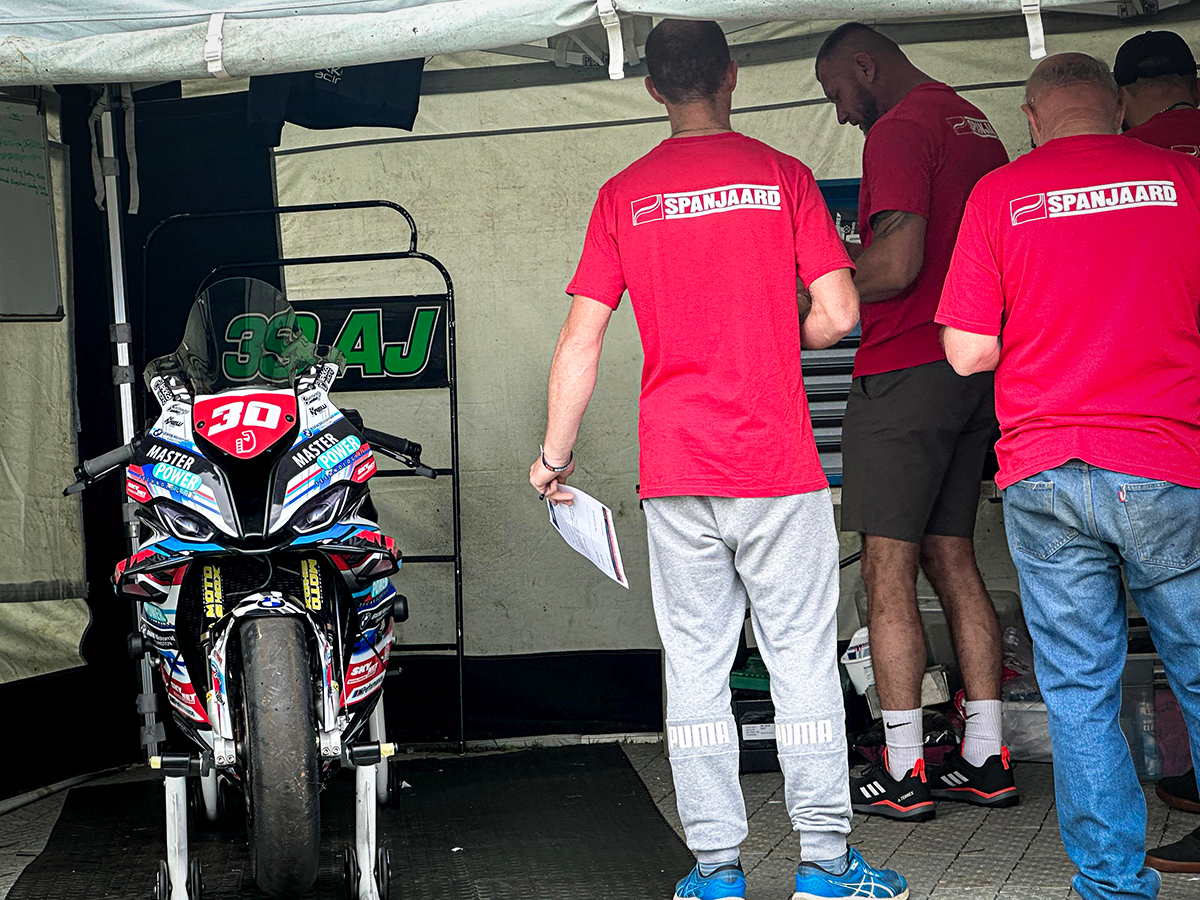
“So, we did that and headed back to the Dyno. We had to make an appointment, which meant we had to wait three hours. Another forty quid and the problem still isn’t fixed so back to the drawing board we go and back to the Dyno; another forty quid. Now this is getting expensive and I can’t carry on paying that, so I have to go out to at least set a flying lap time, rather than a two-lap run, which is an out lap and an in lap, in order to qualify. I did 123.8 mph which put me 40th on the grid.”
“Now the problem with that is that there are a lot of riders in front of you and I’m catching them all over the lap but the TT isn’t an easy place to overtake and you can lose a lot of time. In the Superbike race, I did a lap at 126.4 mph; my ideal was 127.7 mph but I passed three people on that lap; they’re all in line astern, trying to pass each other as well so you really have to grit your teeth to get past them all in one movement without losing too much time.
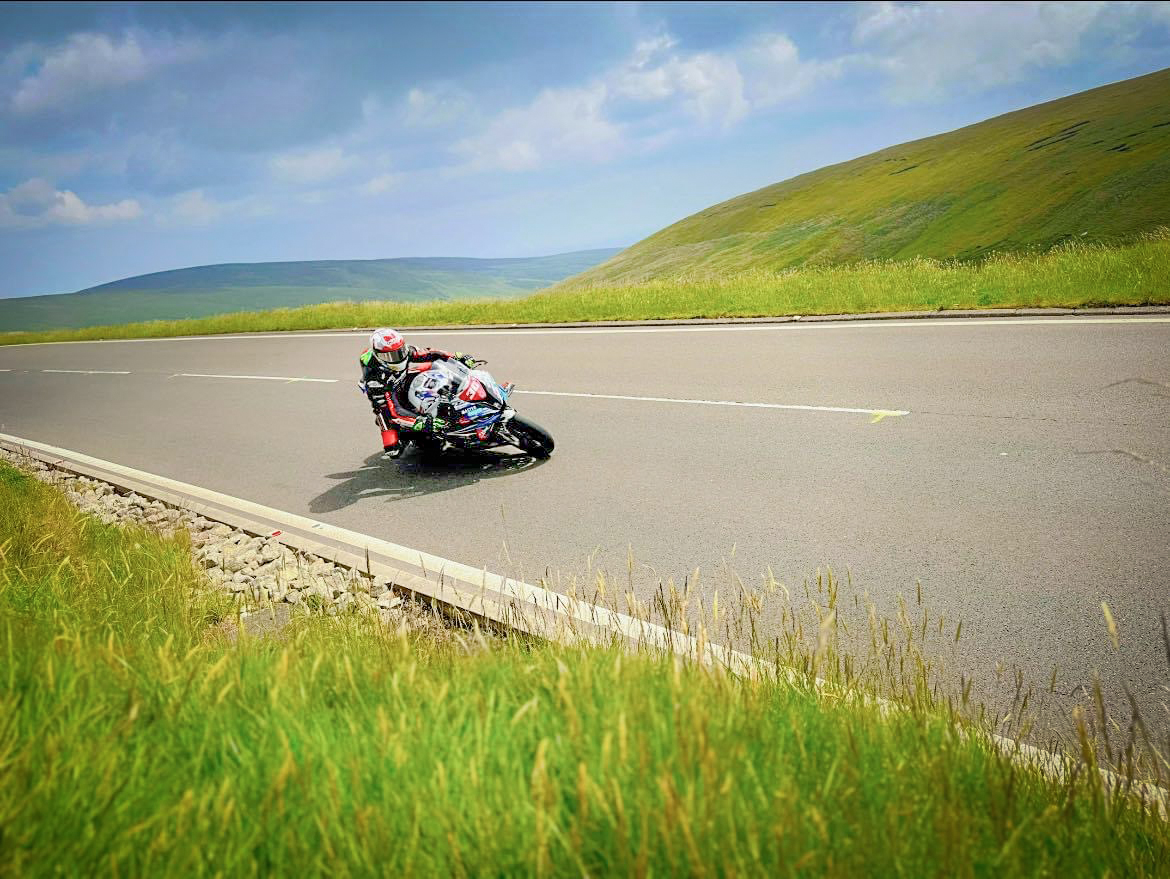
“Then, in the Senior TT race, I had a problem with my front brake adjuster on the BMW, which meant I was losing time as I literally had no front brake and this was the first lap. I had to roll off to adjust it which meant I dropped to 43rd and I thought to myself you can either pull in or dig deep. Do you give up? What has it cost you to get here? So, I did two laps and came in for the pit stop and we duct-taped it into position and I put the hammer down and got back to 23rd by the end of the race.”
And that, ladies and gentlemen, is probably a thousandth of what he has to deal with during the two TT weeks!
Mechanical problems are never far away in road racing. “I blew the twin-engine at the North West and then it went again at the TT; there was a crack in the head at the North West. We sent it to Ryan Farquhar’s workshop to be re-built before the TT, did one lap’s practice at the TT, came into the pits and it was leaking oil from a crack in the casing near the oil filter. We had an hour to change the engine for the spare we’d run at the North West, which was still good but we were worried about mileage. It survived the first SuperTwin race and, thankfully, the second race was shortened and it survived that race as well.”
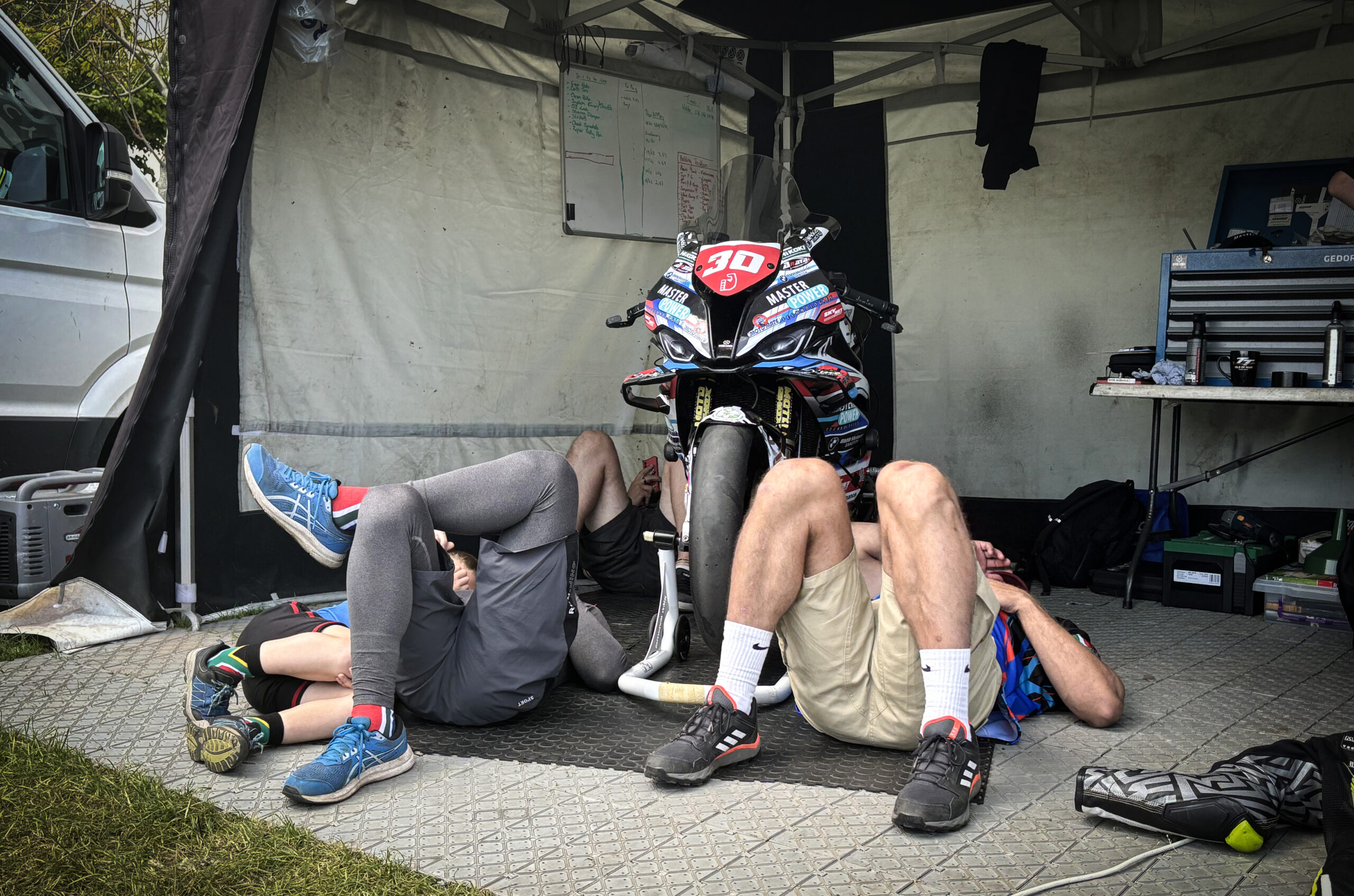
“It’s the nature of the TT; small things will always crop up to derail you. My friend Sam West had a back sprocket hub shear off. Went out the next night, and hit a pheasant which smashed the screen and the clocks. Went out the next night and did his clutch. Everyone hits problems and we all help each other out as much as we can. So, I’d rather my worst part of the TT was a brake adjuster – I aged about six years with fright but it realistically wasn’t that bad compared to other guys.”
One thing that I have always wondered about TT riders is how they manage their own expectations. They are racers and are used to entering races with a realistic expectation of winning. But, at the TT, is taking part and simply finishing enough, with no ambitions of a podium or a win?
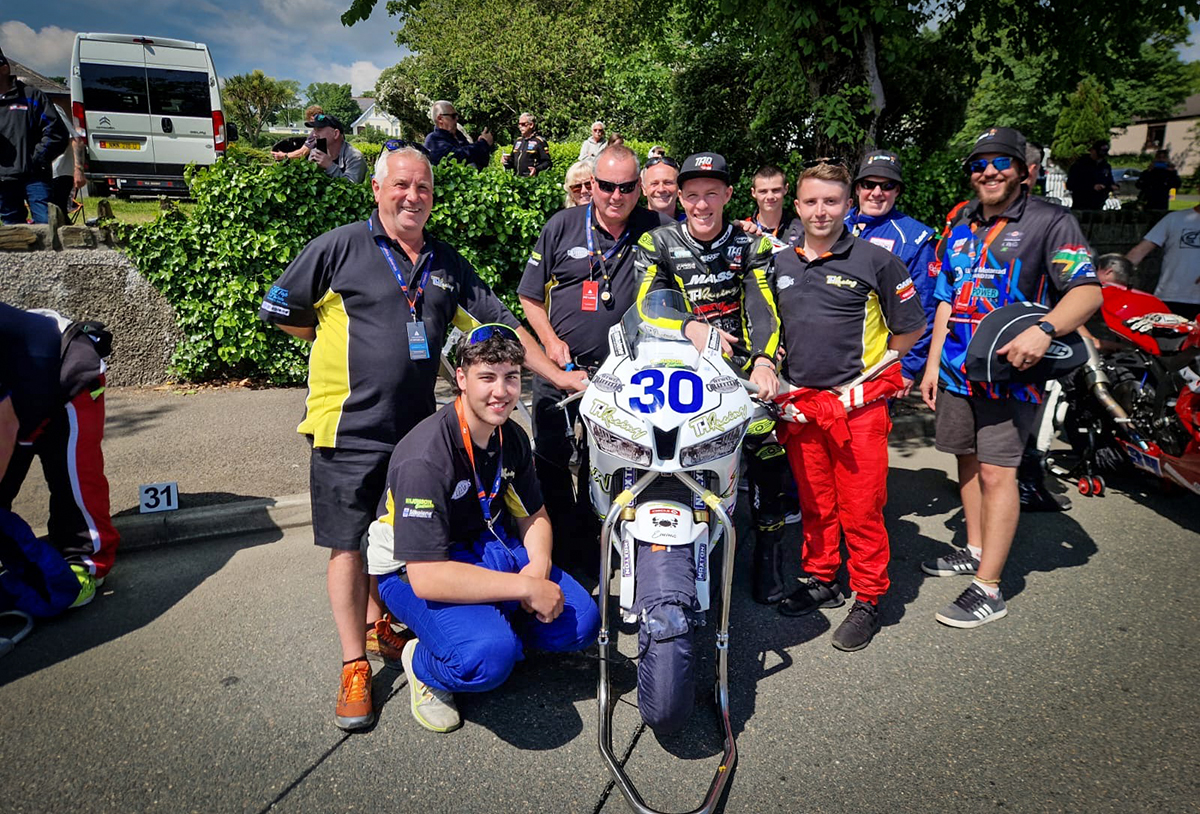
“I think that in this day and age, to say you’re going to win the TT…phew! Realistically, it’s not going to happen, especially with the likes of Dunlop, Hickman and Harrison in the same race. For me taking part is one thing, finishing is another. My first TT, I had the opportunity to do it and I did it because I wanted to. I’m competitive and I like to do crazy things, in the sense of a challenge to yourself. The more I’m learning about the TT, the more I’m enjoying it and I set myself new goals each time and those goals revolve around simply going faster each year. “The TT is a challenge to yourself. To crack the top ten, you have to be doing a lap at 131 mph. That’s how competitive it is. For me, do I think I’m going to win a TT? Probably not. But every year you go with a new goal and because you have the little mess-ups, you’re always thinking, if I could only string a perfect lap together, I’ll go quicker. It keeps sucking you in.”
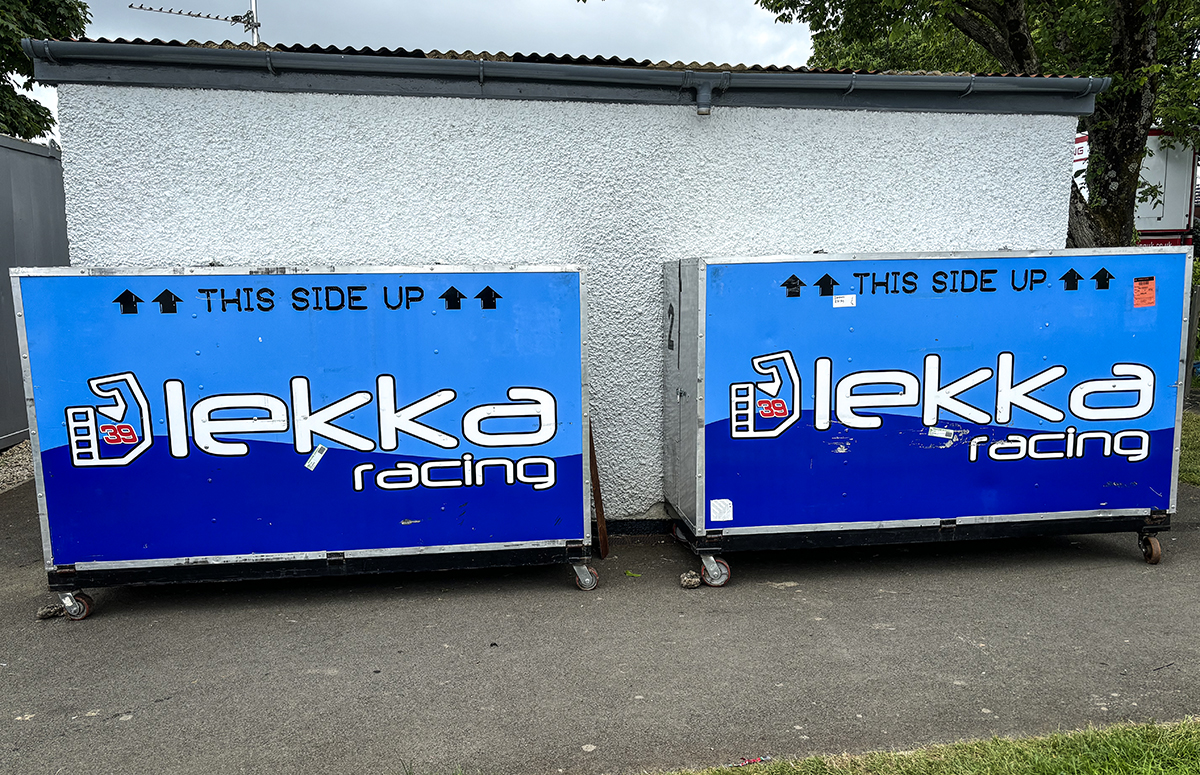
“Last year, I did a 125 mph lap but my ideal was 127 mph. This year I came intending to do a 127 mph lap and did a lap at 126 mph. I never thought I’d do a 125 mph lap but the fact is I’m comfortable and enjoying it, so the lap times are coming to me slowly.”
2013 was AJ’s first year at the TT and, apart from 2017 and the Covid-affected years, he’s been back every year.
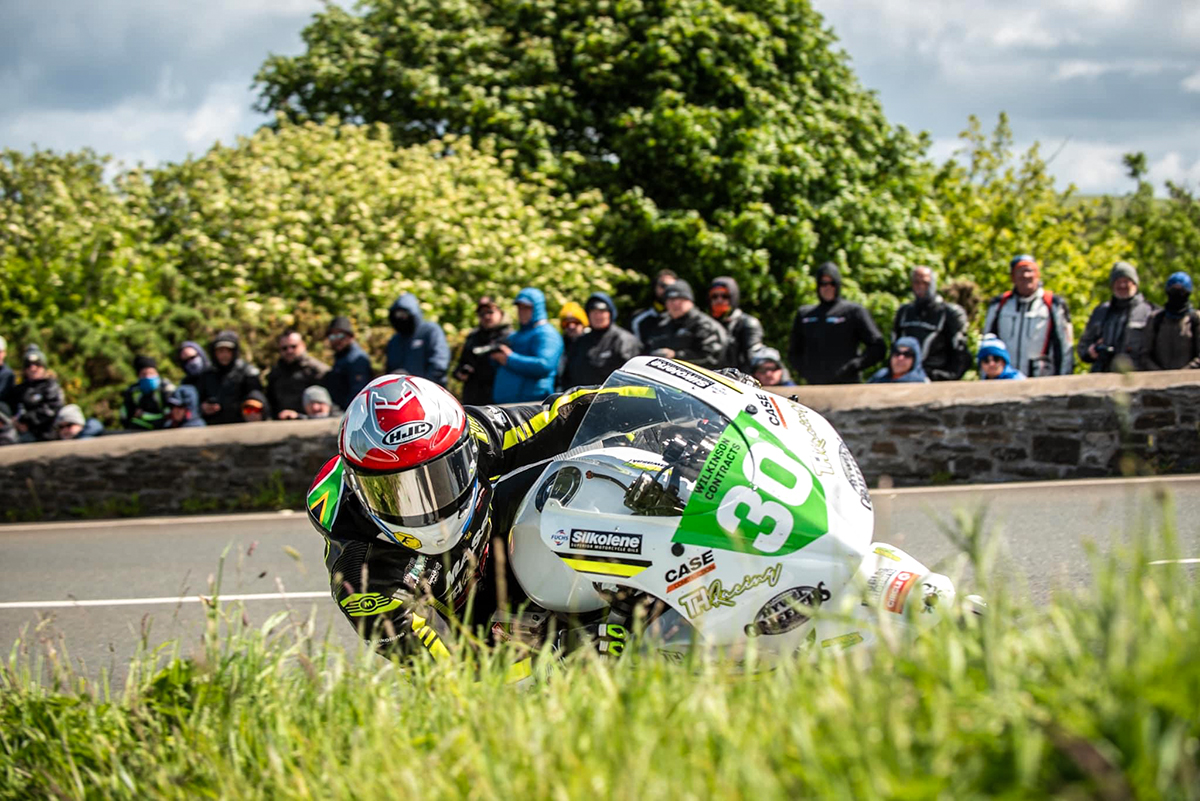
“2019 was my turning point: I paid money to a team to ride their bikes and it cost me 4,000 pounds per lap – I did four laps. I broke down so much. That was the turning point when I decided to bring my own bikes and not rely on anyone else other than myself. But it took me so many years to learn that.”
Despite all this, many people think that he has only been going to the TT for two or three years and that is largely because his social media presence has increased in the two years he has been building his own bikes and taking them over. South Africans are waking up to the fact that there is a South African rider not only competing but knocking on the door of the top ten and this, in turn, is boosting the numbers of South Africans visiting the TT simply because they are more aware of it.
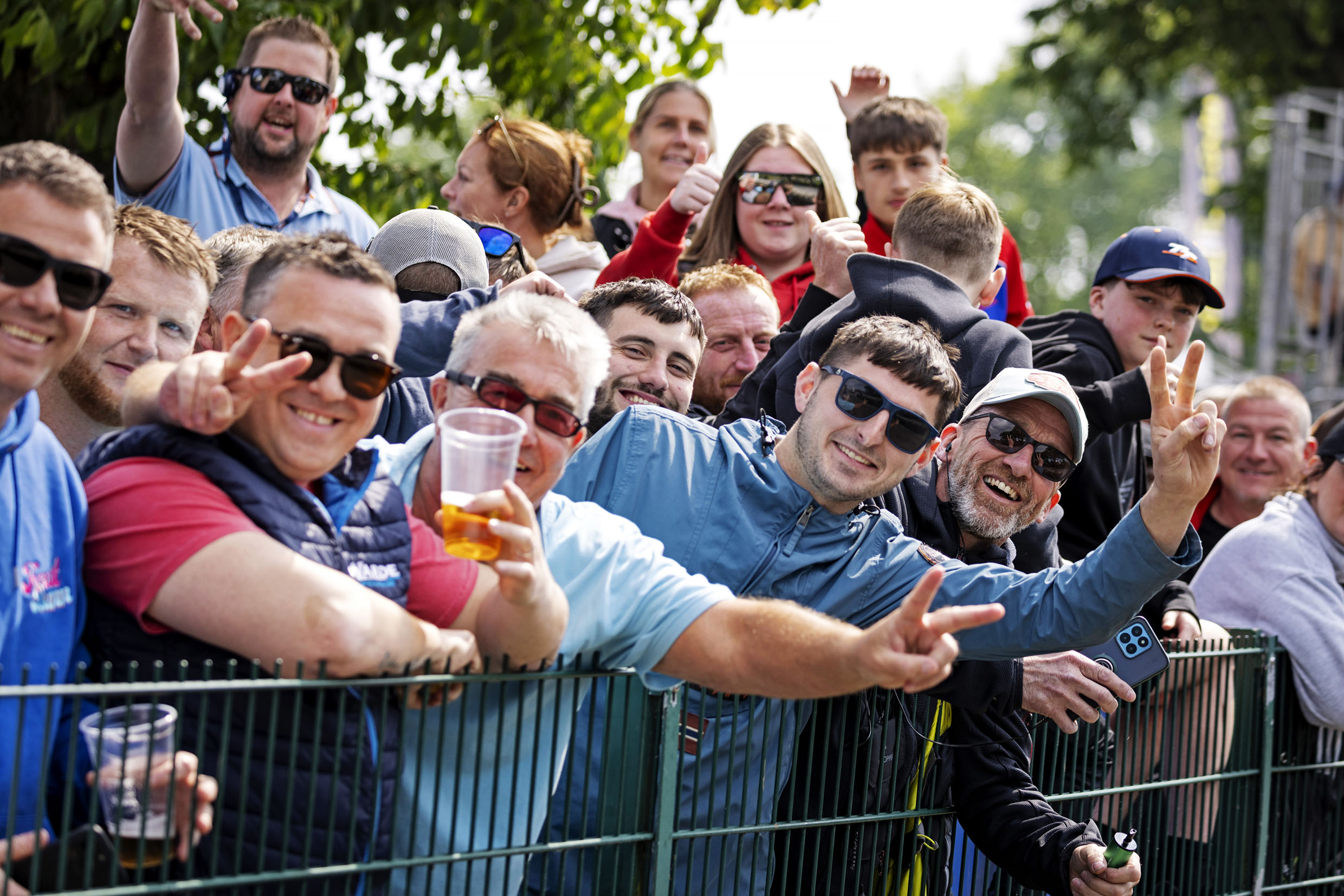
“I take guys around the course in a van when they visit and they always ask if they can pay me for the privilege but I say, no, don’t pay me; go back to South Africa and tell people about the TT because the more South Africans come to the TT, the better it is for me for marketing purposes, to get sponsorship; I’ll be marketing SA brands to SA spectators.”
If mechanical gremlins are part and parcel of the TT, then so are financial headaches. Competitors can only get to the TT with a lot of financial backing but, unfortunately, what has been promised doesn’t always come through; not for any underhand reasons, you understand, but business fortunes fluctuate so wildly that you can get caught in the crossfire.
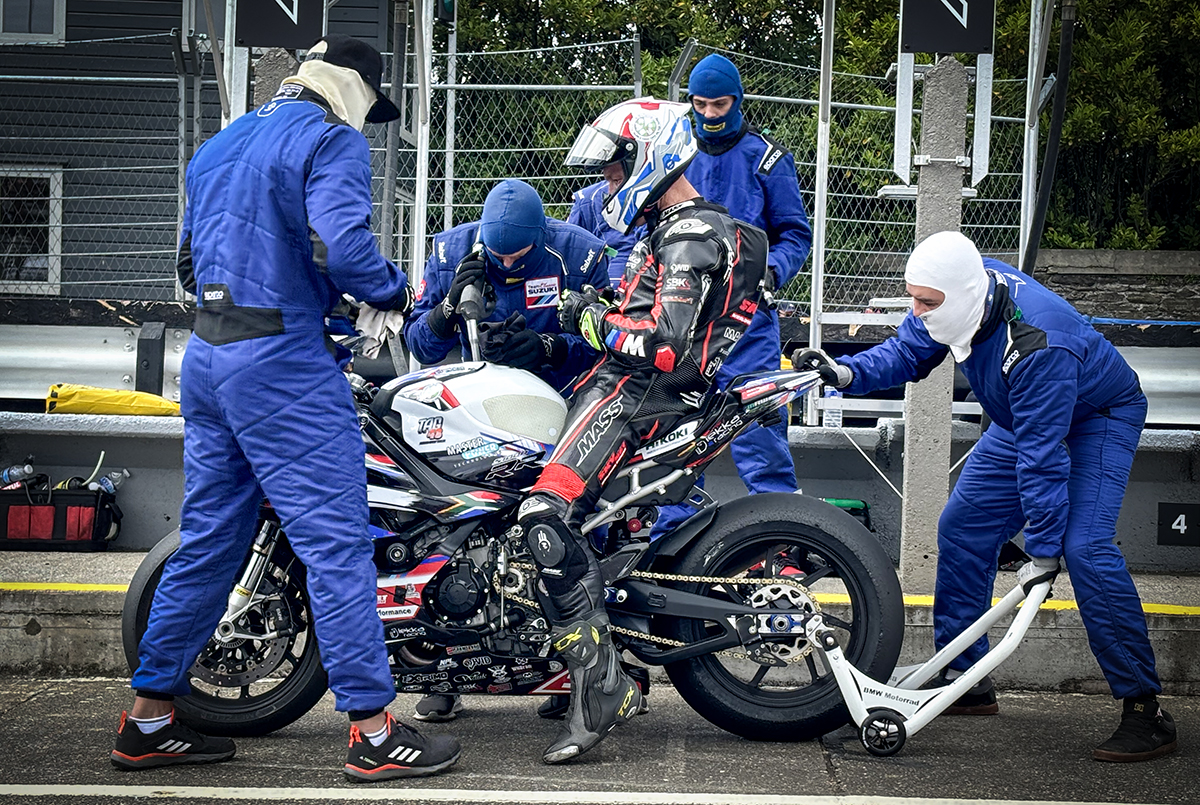
Such was the case with one of AJ’s sponsors. The company lost a big contract which meant that a lot of staff had to be let go. In light of that, spending a large chunk of money on something as frivolous as sending one man halfway around the world to race a motorcycle really wasn’t the right thing to do. And this was at the very last minute before the bikes were due to be shipped from Johannesburg to the Isle of Man.
As is often the case, the shortfall was just about met by other small sponsors but bankruptcy was never far away and AJ was robbing Peter to pay Paul, as well as spending what he didn’t yet have but which had been promised, only for it to never turn up in his bank account.
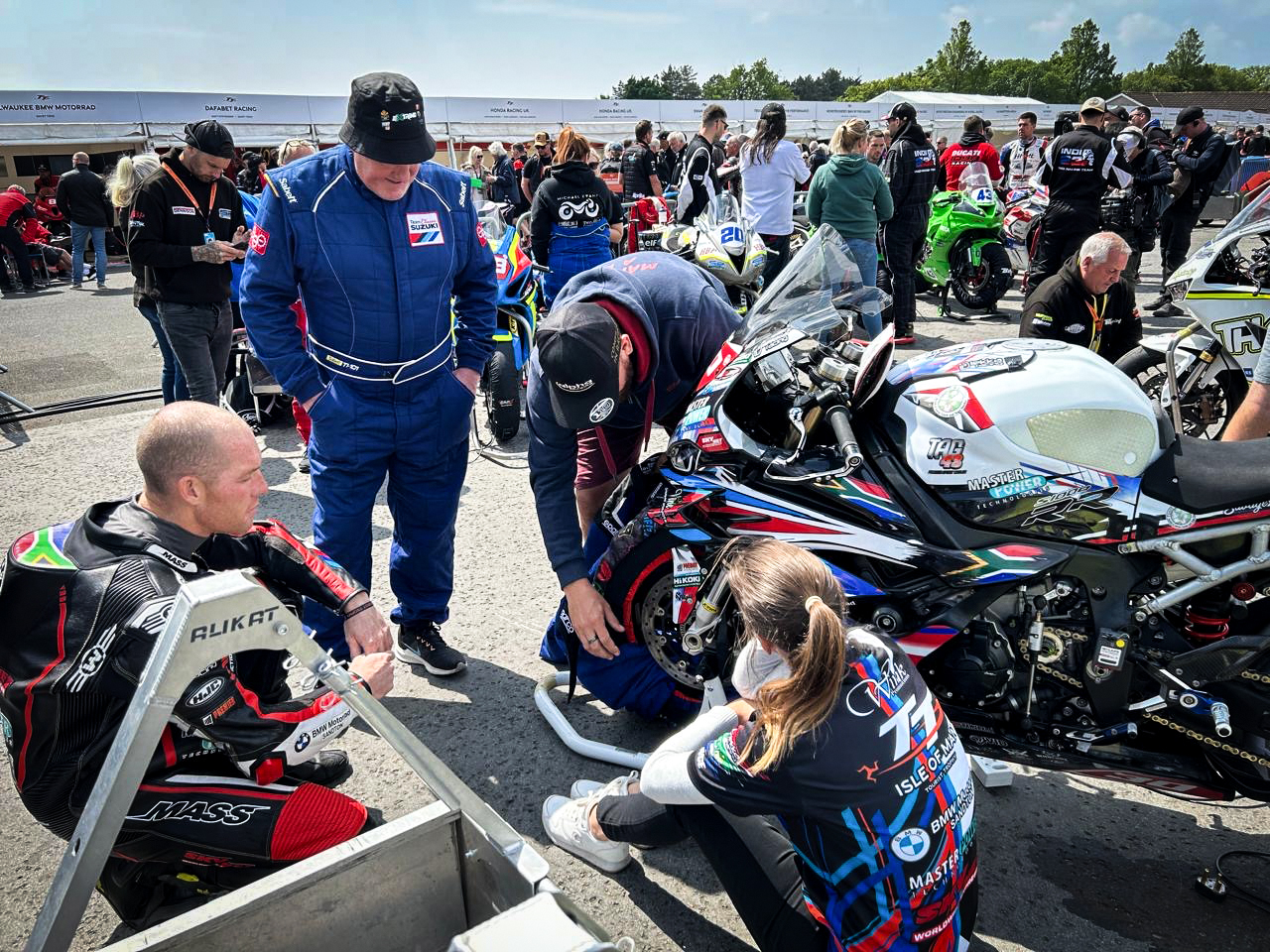
“When I left to go the North West 200, I had R80,000, and we’re talking a R500,000 exercise. A friend had booked accommodation in Ireland but, a week before the races, he had to start treatment for a medical issue, so he cancelled his trip and the accommodation. So I had nowhere to stay for a week and a half in Ireland; never been there before. So I spent the whole week bouncing between the caravans and tents of friends, trying desperately to save money that I really didn’t have. By the end of the North West 200, my tyre bill was 1,900 pounds. I had 2,000 pounds on me. That’s how tight it was. Then I went to France to work for a week to make a bit of money to get me to the TT.”
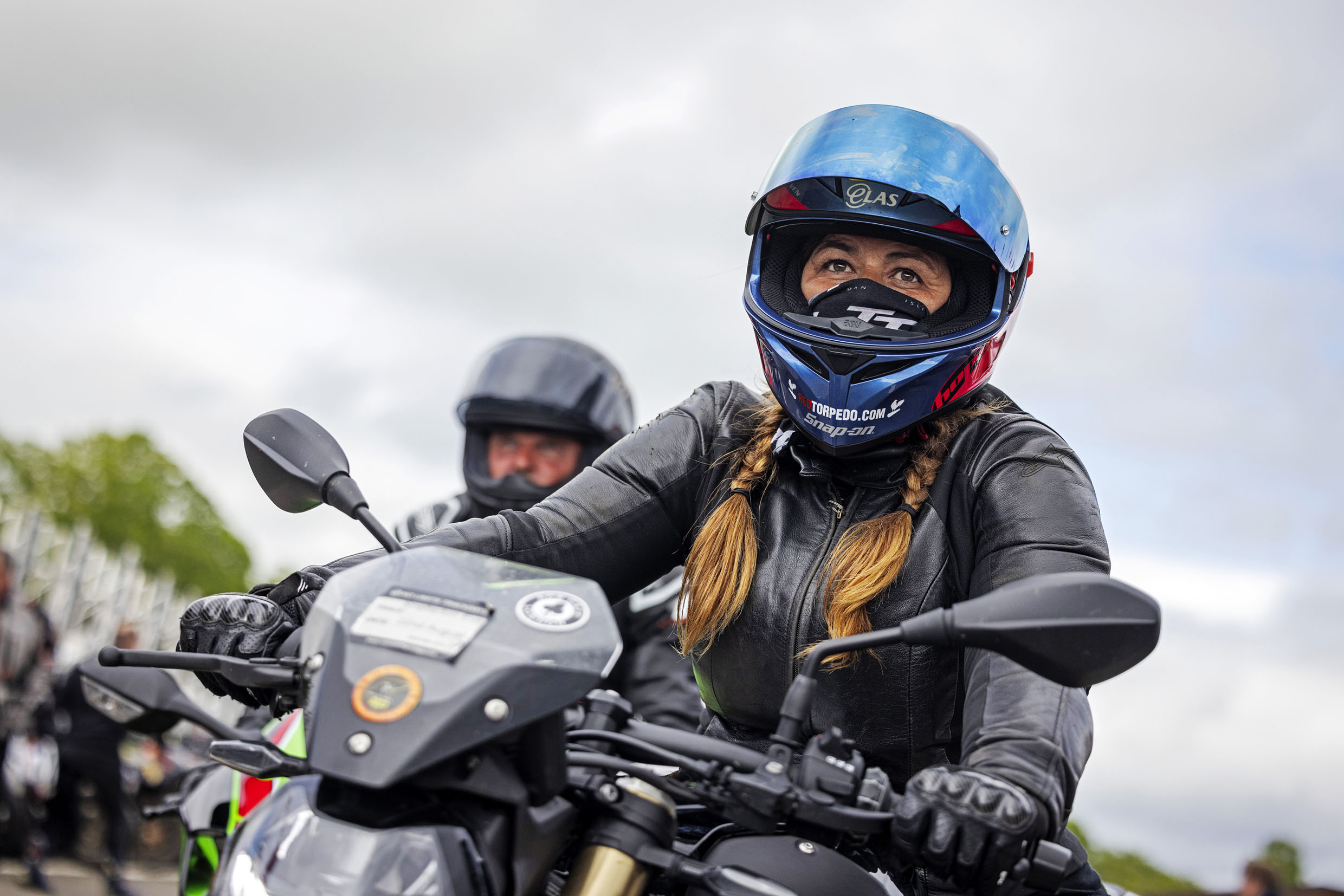
It’s these kinds of things that have perhaps prevented AJ from performing better at the TT; “The reason we had a problem with the throttle on the BMW is that we only got the hardware at the last minute because we didn’t have the money to buy it early. If we could build a bike and finish it early and test it, then these problems would be discovered before I’m about to leave the paddock for the first practice, which is often the first time I’ve seen the bike! I’ve been so busy in the months leading up to the TT, that the first time I see the bike that has been built in my own workshop, is when it is uncrated in the TT paddock!”
With that in mind, AJ’s achievements at TT 2024, including a top ten finish, are nothing short of miraculous and such achievements are being repeated up and down the paddock, away from the superstars that will make up the podium finishers, among the journeymen racers who are doing it for the love of the sport.

And 2025? At one point, AJ was doubtful of the wisdom of heading back to the TT, with all the commitment required and financial stresses. But his showing in the North West 200 brought him to the attention of an Irish team, who said that the coverage AJ was getting was making it easier for them to raise sponsorship to make AJ’s road to the TT easier. This is the crunch; it has taken AJ eight years at the TT to get noticed and it’s now starting to pay off, so why throw in the towel just as this year’s results are helping his cause? In short, he’s not going to get away with not going again!
If time allowed, we could chat to AJ for hours and none of it would be wasted time and certainly none of it would be repetitious. If AJ Venter lives and breathes motorcycles and racing, then it is almost certain that, by this time, he has the TT in his blood, and talking to him about it is another fascinating facet of the TT as a whole; an event that involves a million stories of personal achievement to go alongside the stories of glory involving some of the most famous names in the sport across the ages.
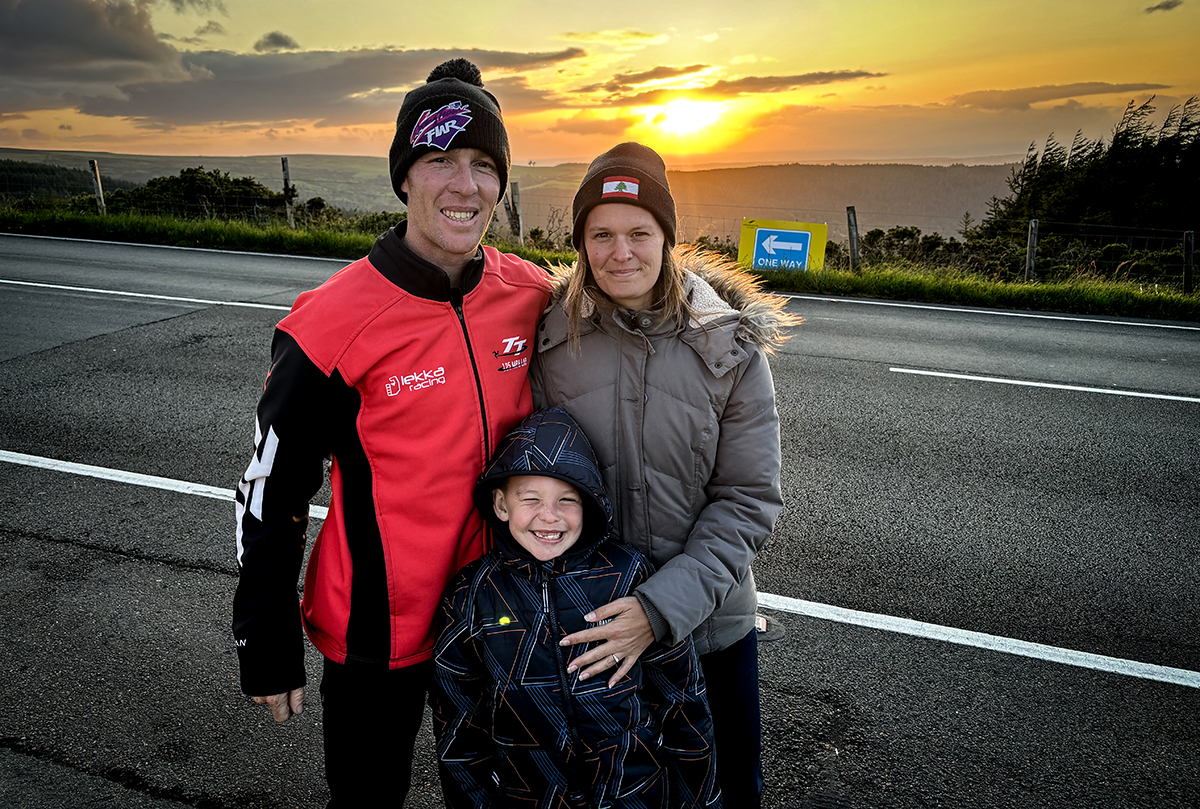
AJ will be back at the TT in 2025 and we urge all of you to follow him on his social media pages (Facebook/Instagram) and start making plans to get there in person to support him. You won’t regret it.
For more information visit – www.lekka-racing.co.za




